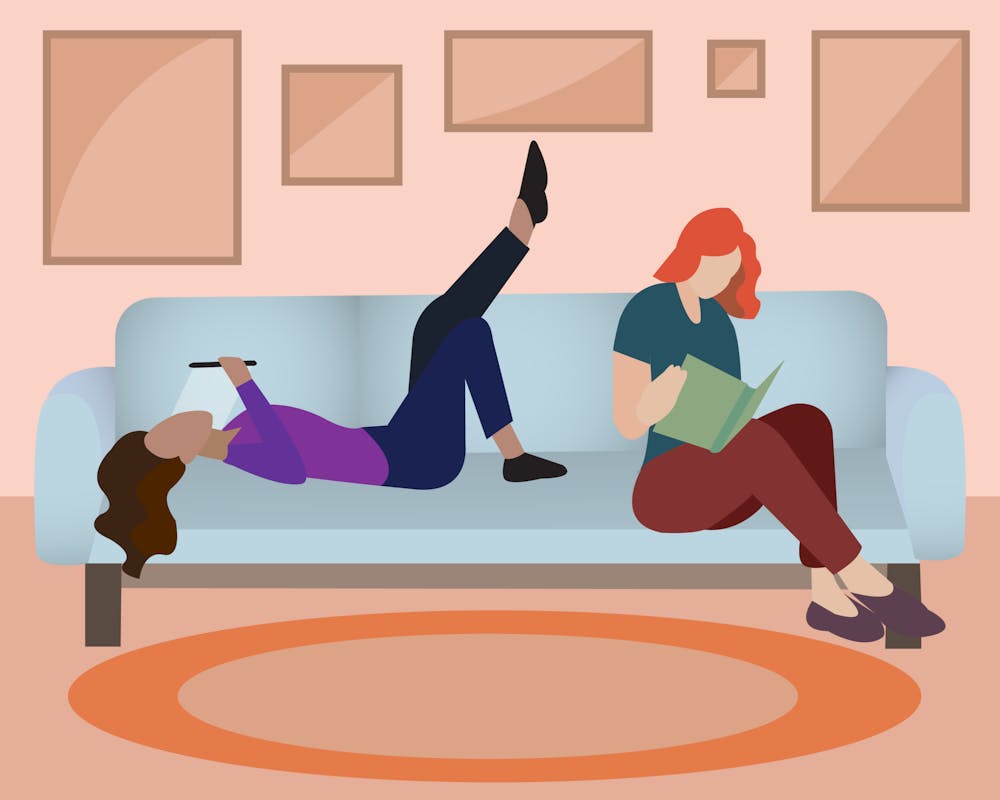It’s safe to assume that younger generations are not reading as many books as their grandparents did when they were young. Of course, there are students who are passionate about literature and will always read, but what about those who aren’t self-proclaimed readers?
Eric Albritton, the manager at local bookstore Ed’s Editions said there are “still plenty of young people reading.”
It just might be through different mediums than physical books. When readers can download books from online to their device and access them immediately, a paperback or hardcover is no longer necessary to read.
“It is kind of weird having a bookstore that specializes in print in a digital age, but it definitely hasn't lost its place in society," Albritton said.
Albritton said Ed’s Editions still receives a good crowd of younger people who mainly gravitate toward fiction novels.
For many, reading is a hobby or school requirement. This leads to the question: How do others spend their free time in a growing age of technology and social media? According to research published by the American Psychological Association, less than 20% of U.S. teens read for pleasure, but over 80% use social media daily.
Albritton said he is not hopeful reading will ever be a main source of entertainment or information for young people, "but it’ll always, at least, have it’s crowd."
Second-year cardiovascular and technology student Nicole Lovaseo is part of that crowd.
“I can kinda escape into a little world and just sit there for hours and be immersed in it,” Lovaseo said.
Third-year English student Richard Hurteau is a self-proclaimed reader, too.
“In high school, I always enjoyed English the most, so I figured I might as well major in it,” Hurteau said. “It's a nice, calming thing to end or start the day with.”
Hurteau said he makes time to read both for school and for pleasure each day.
First-year marine science student William Miller is similar to many USC students in that most of his routine reading comes from textbooks assigned to him. He reads “maybe an hour a day at most, doing homework.”
Miller said he recalls reading in elementary school, when he was in a reading program that offered points for reading.
“I was racking up all the points because there was rewards for it,” Miller said. “But yeah, not anymore.”
For many young people, especially students, it is hard to make time for reading for pleasure. Miller said there is “not as much time” for reading a book.
“Unless you like to do it, it's hard to get into sitting down and reading a bunch of words on pages when we have phones and video games and all that stuff now, which I enjoy a lot,” Hurteau said.
Hurteau said he thinks that it is important for young people to read.
“It’s a good way to see what things were going on at that time, with a lot of novels," he said.
Benjamin Adams owns Odd Bird Books in Columbia. As a reader himself, he also stresses the importance of reading.
“Reading broadens your horizons and, I think, increases your capacity for empathy,” Adams said. “It's like a really direct way to put yourself into the experience of a person that could be completely different from you in terms of, like, time, period in history, life experience, or, you know, wealth, or race or gender.”
The trend in physical reading is shifting with the rise of the digital age, but the creative, educational and entertaining outlet of books will remain.

